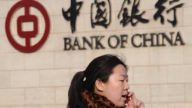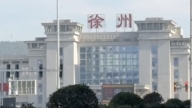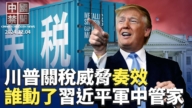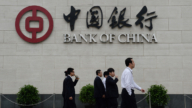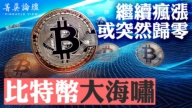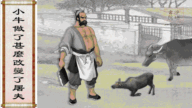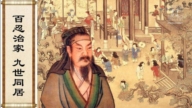【新唐人2011年11月19日讯】中共中宣部主管的中央电视台和《人民日报》,这个月报导了“中电信”和“中联通”两公司,因涉嫌在宽频接入领域存在垄断,发改委正对两公司进行调查。对此,工信部也利用旗下报章《人民邮电报》反唇相讥。外媒认为,中央级传媒公然批评央企,非常罕见,有评论认为,宽频市场的利益纠葛复杂,民众对司法已经不信任,“反垄断案”最终只能不了了之。
中共中央电视台《新闻三十分》,11月9号指出,发改委正对“中电信”及“中联通”进行反垄断调查,两公司涉嫌在宽频接入领域存在垄断,或面临数亿至数十亿元的罚款。官方喉舌《人民日报》随后也跟上,发表两篇有关反垄断法的文章。
两天后,工信部机关报《人民邮电报》在头版,以“混淆视听、误导公众──驳央视对电信、联通涉嫌价格垄断的报导”,逐点反驳。文章以非常激烈语句指摘央视的报导。
央视和工信部旗下媒体驳斥了几天后,《南方都市报》发表了社论文章表示,原因就在于,电信行业本身属于国家特定行业和领域,采取限制其他主体进入的方式来特许经营,是最明显也是最主要的国有资本垄断行业之一。
中国网路作家荆楚也表示,中国的电信行业都是官僚垄断,被有权有势的太子党控制。
中国网路作家荆楚:“因为中国的电话费太贵了。这个网路也是一样的,因为它是一个垄断,垄断只有两家,两家它就形成了一个利益共同体,两个人协商价格,达到一个垄断的价格。如果是对它们罚以重款的话,有人就会担心啦,最终要把这个罚款的负担要转嫁到消费者的头上去。”
荆楚说,以前装一个电话需要几千块钱,等于一个人一年的收入,用户自己买电路,而且每个月不管用不用,都要收取月租费,使用了多少,又要按多少来收钱。
而发改委公布的调查数据显示,“中电信”和“中联通”之间的互联互通状况非常不好。由于存在着割据垄断的状况,两家的互联互通自然会影响到用户,如果互联互通没有达标的话,对消费者的损害其实已经产生了。
旅居荷兰的软体工程师立里认为,还不一定是垄断造成的问题,而是部门分割利益造成的问题。
软体工程师立里:“比如说,中国电信和中国联通它要向客户竞争,它可能用一种恶性竞争的方式,它不是一种良性竞争,它互相拆台。我故意的把它和中国联通的那些网路接点的速度弄的很慢,连接很慢,比如中国电信以前它和教育网,和大学的教育科研网速度非常之慢,之间,甚至比到国外的速度还慢,就是在你的中国的内部速度,有的时候,你两个网之间的速度比到国外还慢,它有的时候是故意的。”
立里指出,这是一种不正当的竞争,妨碍了用户的利益。
《法国国际广播电台》评论认为,在这种资源垄断的经营中,竞争表象背后,实际还是自己人玩的游戏。竞争的并非普遍意义上的市场主体,消费者只能作为旁观者存在。而且,出现了所谓“服务差、收费高,却非但没有被淘汰,反而不正常生长”的逆淘汰怪象。
新唐人记者易如、唐睿、郭敬采访报导。
CCP Central Companies Toughly Refuted CCP Media
CCTV and People’s Daily, both controlled by the
Propaganda Department of the Chinese Communist Party
(CCP), reported that China Telecom and China Unicom
were suspected of an alleged monopoly in the broadband access business.
The CCP’s Development and Reform Commission is making
investigations into the two companies.
CCP Ministry of Industry and Information Technology (MIIT)
refuted the allegations in its official newspaper.
Foreign media say that it is very rare that CCP central-level
media dare to openly criticize listed central companies.
Comments state that the broadband market involves
complex conflicts of interest.
The public has no confidence in China’s judiciary,
The Anti-monopoly Law will only end up with nothing definitive.
News in 30 Minutes of CCTV, the CCP mouthpiece,
stated on 9th November that the
Development and Reform Commission is making an
anti-trust investigation into China Telecom and China Unicom.
Both companies are suspected of holding a monopoly
in broadband access business, and face possible fines into hundreds of millions or billions of RMB.
CCP’s other mouthpiece, People’s Daily, followed closely,
publishing two articles on antitrust.
Two days later, People’s Posts & Telecommunications News,
MIIT’s official newspaper, issued an article on the front page,
entitled “Confusing the Issue and Misleading the Public:
Refuting CCTV’s Report Alleging China Telecom and China Unicom suspected of Price Monopoly”.
The article retorts point-by-point, taking a very tough tone.
A few days later, the Southern Metropolis Daily published
an editorial, saying that
the reason behind it is China’s telecom sector is a specific industry and field,
a franchise that restricts other entities’ access,
and is one of the most obvious and important sectors
monopolized by state-owned capital.
China’s internet writer, Jing Chu, commented that China’s
telecommunication industry is one of bureaucratic monopoly, controlled by CCP prince lings.
Jing Chu (Internet writer): “Phone charges are too expensive
in China, also with the internet broadband charge.
This is due to the same monopoly, two monopoly enterprises.
So these two businesses formed a community of interests.
They negotiated to set a monopoly pricing.
If they were levied heavy fines, some people will worry that
the penalty might be transferred to the consumers in the end.”
Jing Chu said in the past, a telephone installation cost
thousands of RMB, equivalent to one year’s income.
Each month, the subscriber has to pay a fixed line rental
charge, and extra charges based on the actual consumption.
CCP Development and Reform Commission’s survey show
that the interconnection quality between China Telecom and China Unicom is very poor.
The monopoly segmentation’s existence causes
the interconnection of the two to affect the subscribers naturally.
If the two’s interconnection quality does not reach the standard,
that will have produced real damages to the users.
Lili, a software engineer living in the Netherlands, guesses
that the problem may not be caused by the monopoly,
but instead, due to dividing up interests
among CCP ministries.
Lili (Software engineer) : “In order to compete for customers,
China Telecom and China Unicom might make for cut-throat competition, instead of a healthy one.
They mutually undercut each other.
For example, some websites’ connections to others within
China Unicom’s network are deliberately adjusted to run very slowly.
China Telecom’s network has a very slow connection to
the university education network, even slower than the connection to overseas websites.
In other words, in China’s domestic arena, sometimes
the connection speed between China Telecom and
China Unicom networks are even slower than
the connections to overseas. Sometimes, this is intentional practice.”
Lili said that this is unfair competition,
hindering the user’s interests.
Radio France Internationale commented that
in such a monopolistic business sector,
beneath the competition surface is in fact a game being
played by people on their own side.
The competition participants are not the normal
market entities, and consumers can only exist as a spectator.
Moreover, there appears this strange phenomenon of
“poor service with high charges, instead of being weeded out, It is instead seen as growth “.
NTD reporters Yi Ru, Tang Rui and Guo Jing








